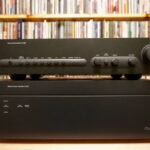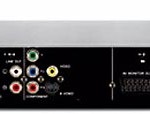This past March, Greenpeace made headlines by criticizing Apple's environmental policies–or lack thereof.
The move generated a rare response from Apple CEO Steve Jobs, who in an online memo outlined previously undisclosed plans for "a greener Apple." It also sparked protests from pro-Apple bloggers, who claimed Apple's leadership in the digital music space had a positive impact on the environment.
After all, replacing physical CDs with digital files must help the environment, right?
Not really. Environmental groups claim the music industry's transition from physical to digital is of no discernible benefit to the environment and, in the short term, is actually causing more harm than good.
For starters, there's no noticeable decline in the number of physical CDs found in landfills. While music fans are buying fewer CDs at record stores, they are buying more blank recordable CDs to burn their own discs from music acquired digitally.
 According to research from Understanding and Solutions, sales of recordable CDs–or CD-Rs–have increased from 9.9 billion in 2004 to 10.5 billion last year. While in the United States CD-R sales actually fell slightly in the same time frame, from 2.3 billion to 2 billion, sales in Asia have increased 20 percent, and the Consumer Electronics Association (CEA) expects U.S. sales to grow by 2 percent this year.
According to research from Understanding and Solutions, sales of recordable CDs–or CD-Rs–have increased from 9.9 billion in 2004 to 10.5 billion last year. While in the United States CD-R sales actually fell slightly in the same time frame, from 2.3 billion to 2 billion, sales in Asia have increased 20 percent, and the Consumer Electronics Association (CEA) expects U.S. sales to grow by 2 percent this year.
"It's like when people who use computers were trying to go for a paperless office and ended up printing out more paper," says Paul McRandle, deputy editor of the Green Guide, an online environmental information resource and newsletter that the National Geographic Society acquired in March.
A mountain of MP3 players
Adding to the problem is the rising popularity of MP3 players. Apple has sold more than 100 million iPods. According to iSuppli, more than 178 million MP3 players were sold worldwide last year alone, and sales are expected to grow another 21 percent to 216 million this year. As devices grow more sophisticated, a growing percentage of MP3 players will replace older models.
When Greenpeace targeted Apple, it pointed out two concerns–how electronics devices are made, and what is done with them after they expire.
MP3 players contain various heavy metals and chemicals such as lead, cadmium and brominated flame retardants (BFRs) that are considered more harmful to the environment than any CD or its packaging. Neither the U.S. government nor the CEA has implemented standards for limiting such toxic materials. Instead, manufacturers are left to voluntarily follow the European Union's Reduction of Hazardous Substances (RoHS) guidelines, which in many cases is more a matter of public relations than real compliance.
MP3 players "just add to the number of heavy metals leaked into the environment from electronics components," says McRandle, who gives the industry a D for its efforts to reduce such materials. "Electronics companies have shown themselves very unwilling to adopt the RoHS standard. They may be shipping RoHS products, but they don't make it obvious which ones have met those standards. They don't include eco-certifications, (which) makes it more difficult for the consumer to pick and choose one item from another."
Now on News.com
The countdown to the iPhone Photos: Wild blue yonder lands in France Blog: Political blogs: A reality check Extra: Raising privacy alarm over RFID chips Video: This car moves without a driver
The "disposable" mind-set
The industry is making slightly better progress in the matter of how these devices are treated after they've been sold. Almost every major consumer electronics manufacturer has some kind of after-market recycling program. Apple, for instance, gives customers a 10 percent discount on new iPods when they turn in their old one at an Apple store.
A 2005 CEA survey found about 55 percent of consumers say they simply give away or donate their old consumer electronics equipment, while only 20 percent simply toss them. MP3 players were not included in the report.
But McRandle's grade for existing recycling efforts remains a C-.
"They need to increase consumer awareness," he says. "If people don't know, they won't do it. Then you're left with this hunk of plastic with toxic elements in it that people are more likely to throw out than save."
He also faults the industry for encouraging replacement over repair or reuse. iPod batteries, for example, are notorious for having short life spans. While Apple offers a battery replacement program and operates a brisk refurbished iPod business, introducing a new iPod every year makes it tempting to just buy a new one.
To help address these concerns, the CEA in January launched an informational Web site called MyGreenElectronics.com. It provides donation resources, information on local and company-specific recycling efforts and a buyer's guide that lets manufacturers showcase "green" products.
It's also worth noting that MP3 players contribute far less to electronic waste than the main culprits–mobile phones and computers–and much of today's faults are chalked up to the growing pains of a nascent industry.
Story Copyright © 2007 Reuters Limited. All rights reserved.







